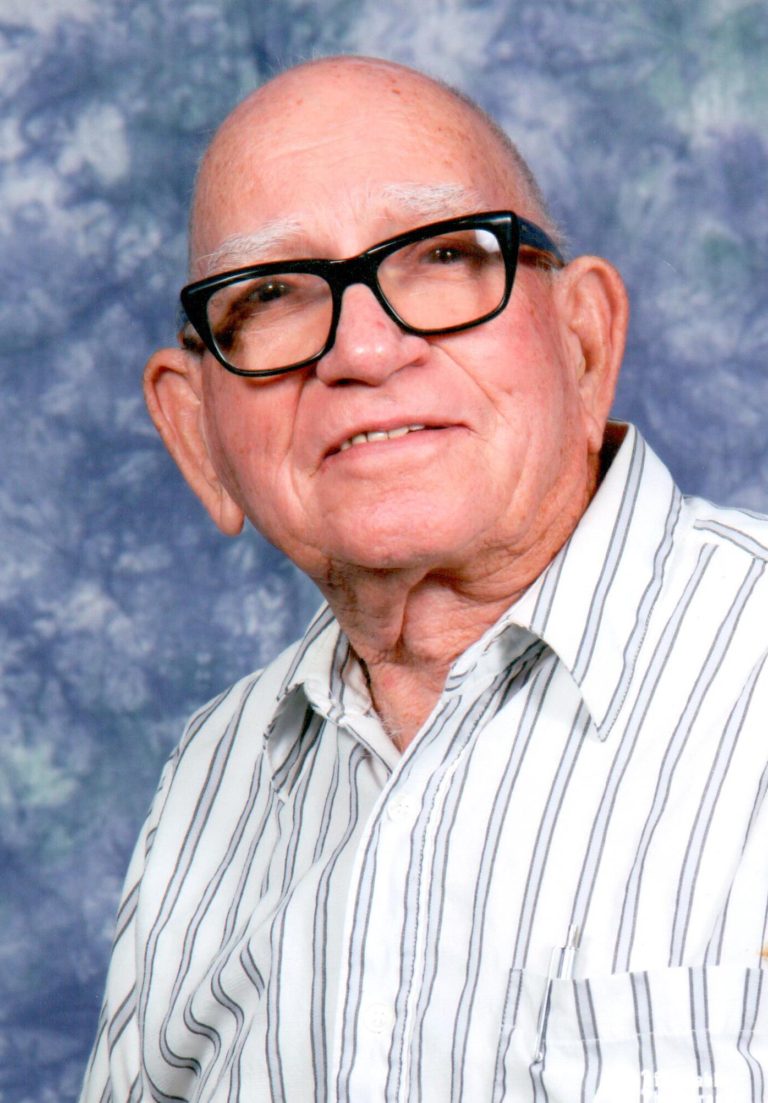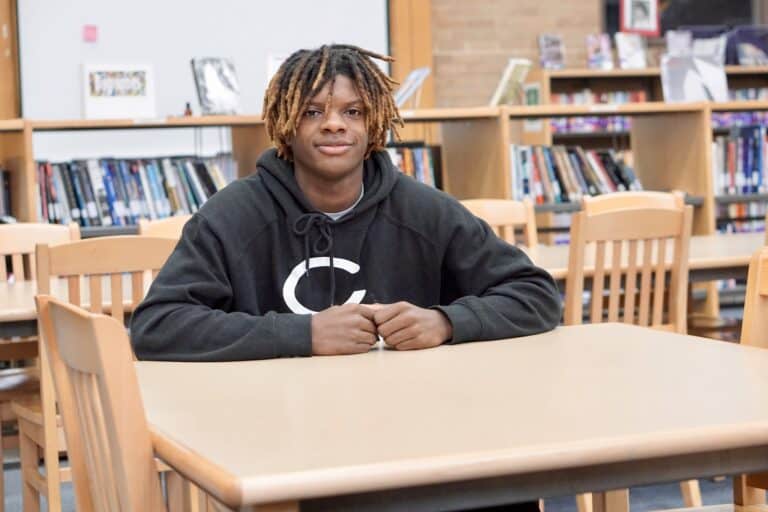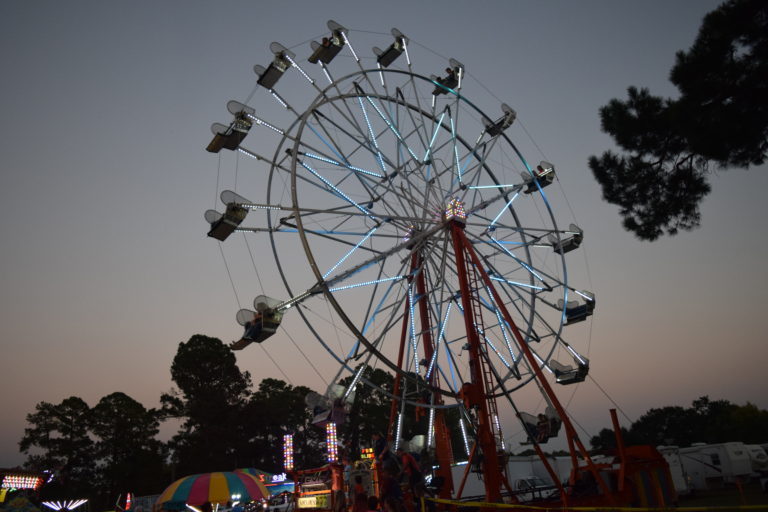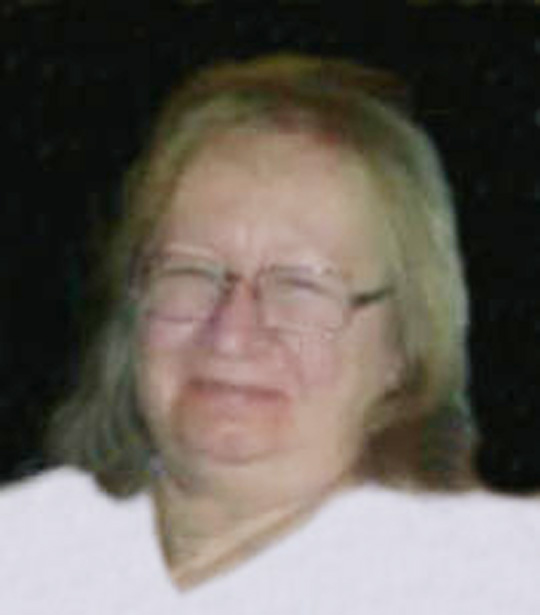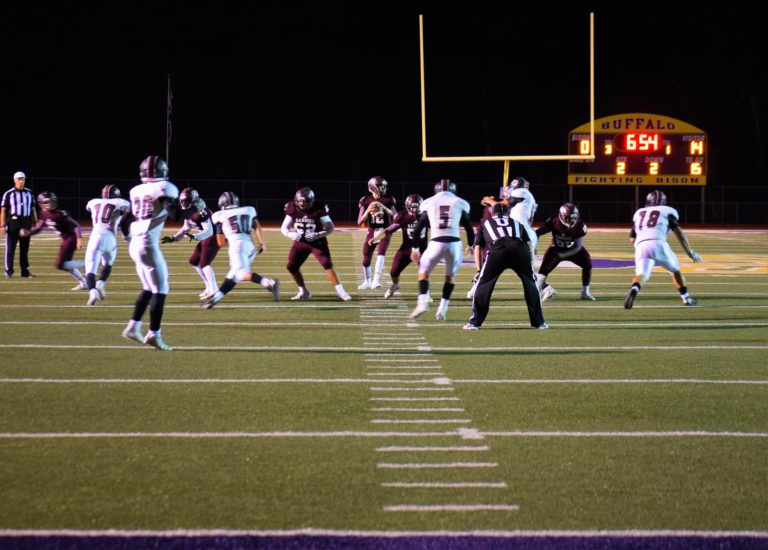The Messenger Goes on a Ride-Along with Crockett Police
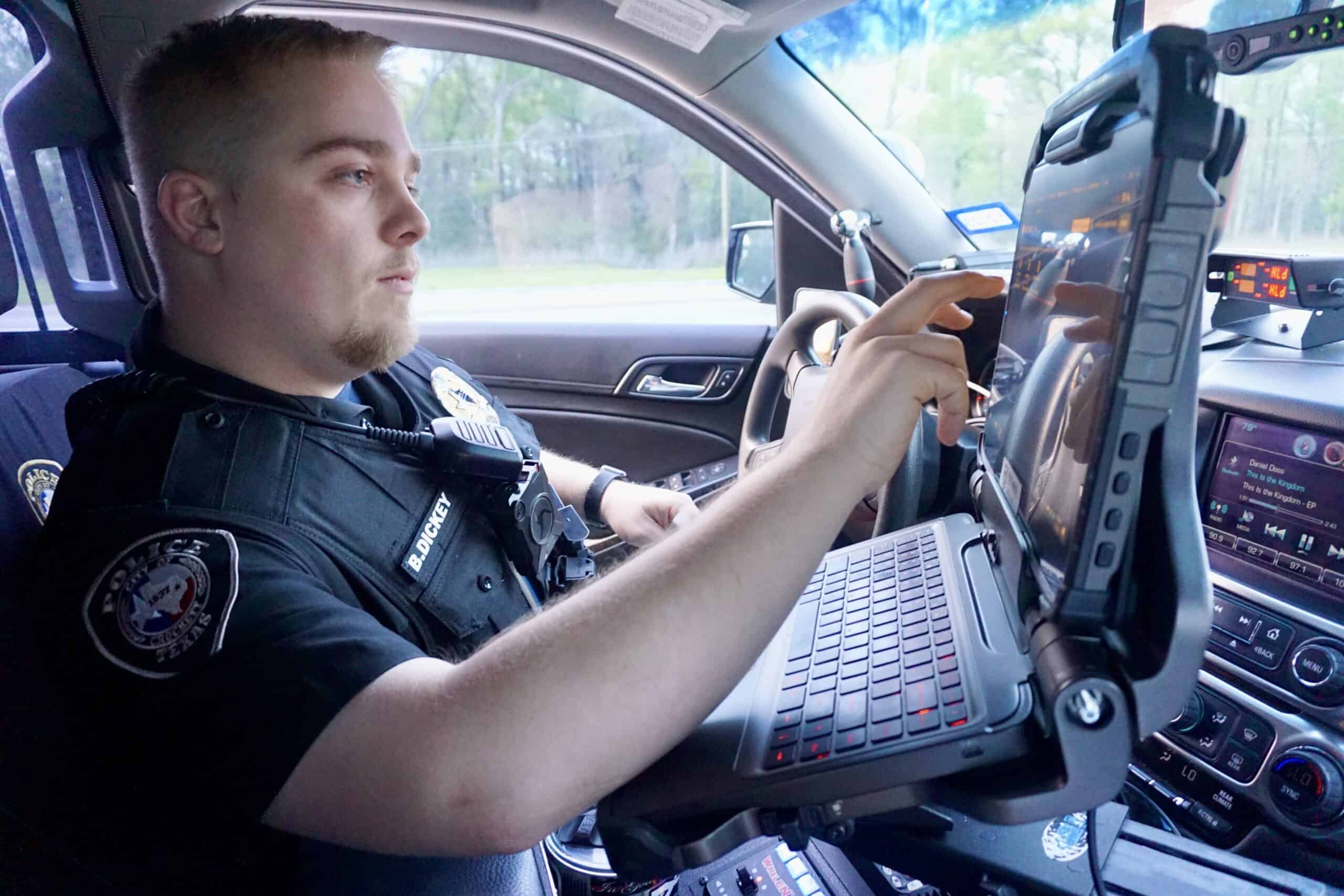
By Greg Ritchie
Messenger Reporter
CROCKETT – When Crockett Police Department (CPD) Chief Clayton Smith asked if I would be interested in doing a “ride along” with some of his officers, I jumped at the chance. Thinking back to all those episodes of “Cops” I had seen as a young man, visions of takedowns, clue-finding, fast-speed chases danced in my head. I could even hear the old theme song ringing in my ears: “Bad boy, whatcha gonna do?”
As it turned out, the real scoop was getting an inside look at some of the officers who patrol our streets and keep us safe while we get on with life. I figured there wouldn’t be a lot of action on a Thursday evening in Crockett – and I thought I would ask some good questions and get nothing but standard, sanitized responses like you see at a press conference or when anyone in Washington D.C. speaks.
I turned up for the evening a little before 4 p.m. Thursday, Mar. 9 looking forward to helping stop speeders, take down an international diamond smuggler, finding Jimmy Hoffa – you know, the usual. The officers were escorting a man to jail on a warrant arrest and my first impression was how well-trained they are and must be. There was some salty language, many protests of innocence – but with much patience the officers explained he would have an opportunity to prove everything he said. In the meantime, they explained, a warrant is a warrant and we must enforce the rules. Begrudgingly, he accepted this and got into the car without incident and they transported him to the county jail.
I was partnered up first with Patrol Officer Humberto Gonzalez who was a couple of hours away from finishing up the day shift. The 25-year-old joined the force after making an agreement to let the department help him get qualified to be a cop and he would agree to stay with the department for a determined period after that.
As a reporter, you speak with the chiefs and sheriffs all the time but the rank-and-file are usually off-limits or not able to speak freely. I was looking forward to some alone time with an officer to try and understand what motivates them, worries them – why they run in when every fiber tells you to run out.
Gonzalez first explained the rules: “Stay in the car if I leave the vehicle, everything we say and do may be recorded, no, Mr. Ritchie, we will probably not require you to help solve any cases, but thank you all the same.”
The first task was to inspect the patrol unit. The Crockett city council recently approved the purchase of some new units to replace some of the aging ones. These vehicles get a lot of work – Gonzalez drives an average of almost 100 miles per day, all while essentially never wandering beyond the Crockett loop.
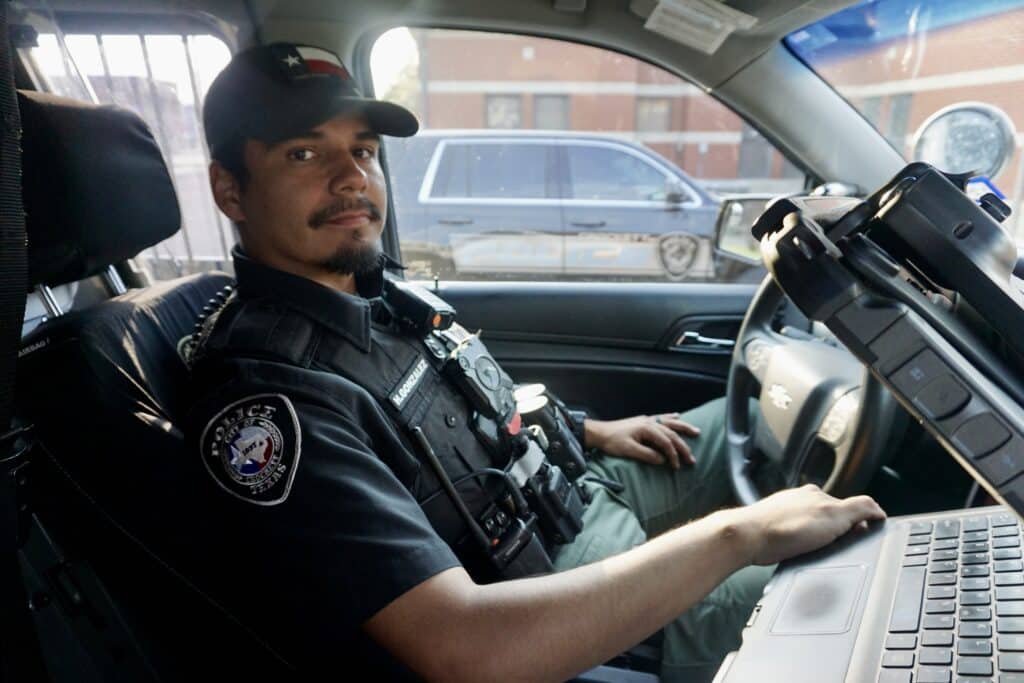
The units are impressive, however, and we have nothing to envy from any of the bigger cities. The computer unit is used to dispatch calls and update information, there are lethal and “less-than-lethal” weapons options – and the radar detectors can see how fast you are going in front of or even behind the patrol unit.
Officers still used the time-tested radios, but much less now than before. Gone is the need to ask dispatch to “repeat that” – it’s all entered in at the dispatch center and the officers see the information in real time. If another call comes with more information, that too, will update on their screen. All interactions are logged here, so if one cop gave you a break yesterday – a different officer will see that and may not be so kind. The calls are all logged on the screen and each officer “takes” a call, almost like a cab driver would take a call for a ride. This keeps everything organized.
Gonzalez began patrolling, making seemingly random, but well-planned circles, varying each time to cover a busy area and another not-so-busy area each time. We began to chat and I was surprised how open and honest the conversation was. “Ask whatever you want,” Gonzalez told me. So I did.
Gonzalez explained the tough schedule the officers use, which has its good and bad points. It’s a twelve-hour day, where they have two to three day rotations, maybe working three days straight and resting two or vice-versa.
We chatted as Gonzalez headed out to make contact with a gentleman having some issues with his wife. The man had asked Gonzalez to come by for several reasons. He had dealt with Gonzalez before, felt Gonzalez had been fair and Gonzalez is bilingual, giving him a great advantage dealing with some members of the public.
We take the long way so Gonzalez can make sure he sees the people and the people see him. Just the presence of a police car can make people drive more carefully or dissuade a would-be criminal.
“I’m a firm believer on not sitting in the office because you’re not being visible if you’re just sitting in the office,” Gonzalez said, scanning the road. “I like to be out and about, let people know that I am patrolling their neighborhoods. People tell me all the time, ‘Hey, thank you for coming down my street.’”
I asked what he looks for when patrolling, “…anything out of place…” came the answer. When I asked for an example, he said. “Like that!” I hadn’t noticed the young man roaring across the avenue in his four-wheeler – but Gonzalez did. I waited in the car while Gonzalez gave the young man a warning and documented the exchange.
I told Gonzalez I admire law enforcement and the job they must do but I couldn’t do that job myself. How do they maintain such a calm attitude even when faced with people on the worst day of their lives.
“I’m very firm in my faith and for me, that’s what keeps me in a straight line through it all. Whether it’s a petty theft or an assault causing serious bodily injury, I’m going to treat them with the utmost respect. I’m going to give them all the reason to be able to tell me the truth and give me the information I need. But I’m still going to treat them like a family member,” Gonzalez said. “A lot of times we have people and this is their first time getting arrested, so they’re very distraught. And if I am too hard on them, it’s just going to be a battle with their mental state and mental illness is a problem nowadays. I don’t want to be the person to set them off and cause it to become worse.”
As the day shift rolled to an end, Gonzalez was looking forward to a few well deserved days off. Back at the station, day shift and night shift touched base, swapped a few war stories from the day’s activities and mentioned someone had brought in some spaghetti if they got hungry later.
Patrol Officer Blake Dickey would show me the ropes on the night shift. Son of Sheriff’s Deputy Roger Dickey and a qualified sniper, Dickey was enthusiastic and friendly with me – but I wouldn’t want to be on the wrong side of the law late at night knowing he is on shift.
There was a road-rage call at a local parking lot which Dickey defused by explaining what police can and cannot do. I realized again, knowledge makes difficult situations much easier. The person who called in the complaint was satisfied and thanked Dickey and off we went. A couple of speeders were stopped and, when all their bona-fides checked out, sent on their way – with a warning this time, but their names will be in that computer forever.
The night shift is much calmer and much more serious all at the same time. As we made our way from the Crockett Loop towards downtown and the sun began to set, the cars on the roads began to fade away into the dusk as people made their way home after work and school. There were fewer people to keep an eye on – but after a certain hour at night, anyone on the road could be a threat.
Dickey agreed the night calls were fewer but more intense. He said it was his favorite part of working the late shift.
“Don’t get me wrong, we do have our busy nights where we are extremely busy,” Dickey explained. “We are able to do a lot of patrolling and a lot of proactive patrolling. More intense calls but more time to be able to get out and seek the DUI or the drug activity. And to me, that’s where I feel I have the most positive impact.”
A truck somewhere coming out of Lovelady towards Crockett sparked several calls from concerned residents, “…he’s driving a hundred miles an hour!” My granny considered anyone doing over 35 miles per hour as “doing a hundred” so the officers would need to see this for themselves. The computer beeped, the radio squawked, the series of numbers and codes were spoken into the shoulder microphone – and soon there was a little dragnet imperceptibly set up. The CPD officers along with Sheriff’s Deputy Denman and a DPS trooper all silently positioned themselves to intercept.
Our little patrol unit had done its part – and like any good team – it takes the whole team to score even if only one of you hits the net. Alas, another unit dealt with the truck as we moved on to other business.
At one point, we came down a small street and a man walking by saw us and simply said, “F—- the police.” I couldn’t believe it but Dickey did not respond. I thought about my reaction to that if I were in my own car or in a restaurant with my wife.
It’s all in a day’s work, Dickey explained. These young officers must protect and serve even those who dislike them or do not trust them. That is the part of the job I don’t think most of us could do. Spending your days and nights dealing with people who – for the most part – do not want you around.
They take the lumps because they are well trained. Because they know one bad cop can give the rest of them a bad name. Because they are good people who make us proud.
I remarked to Dickey, referring to the man who had cursed at us, “Who will he call if he needs help?”
“Us,” he answered. “And we’ll come running to help.”
Greg Ritchie can be reached at [email protected]


